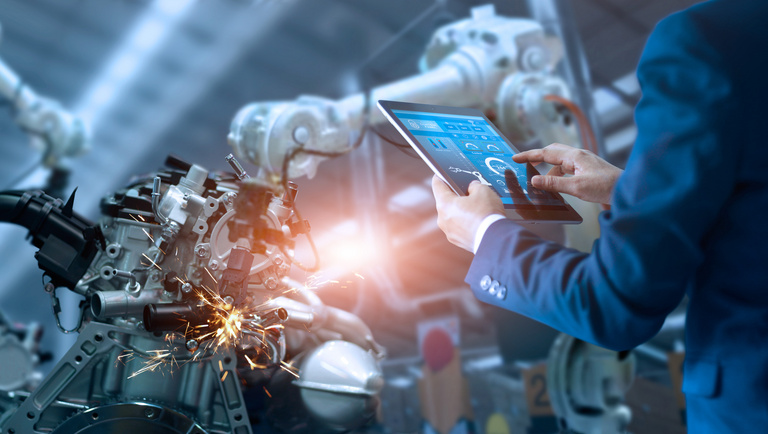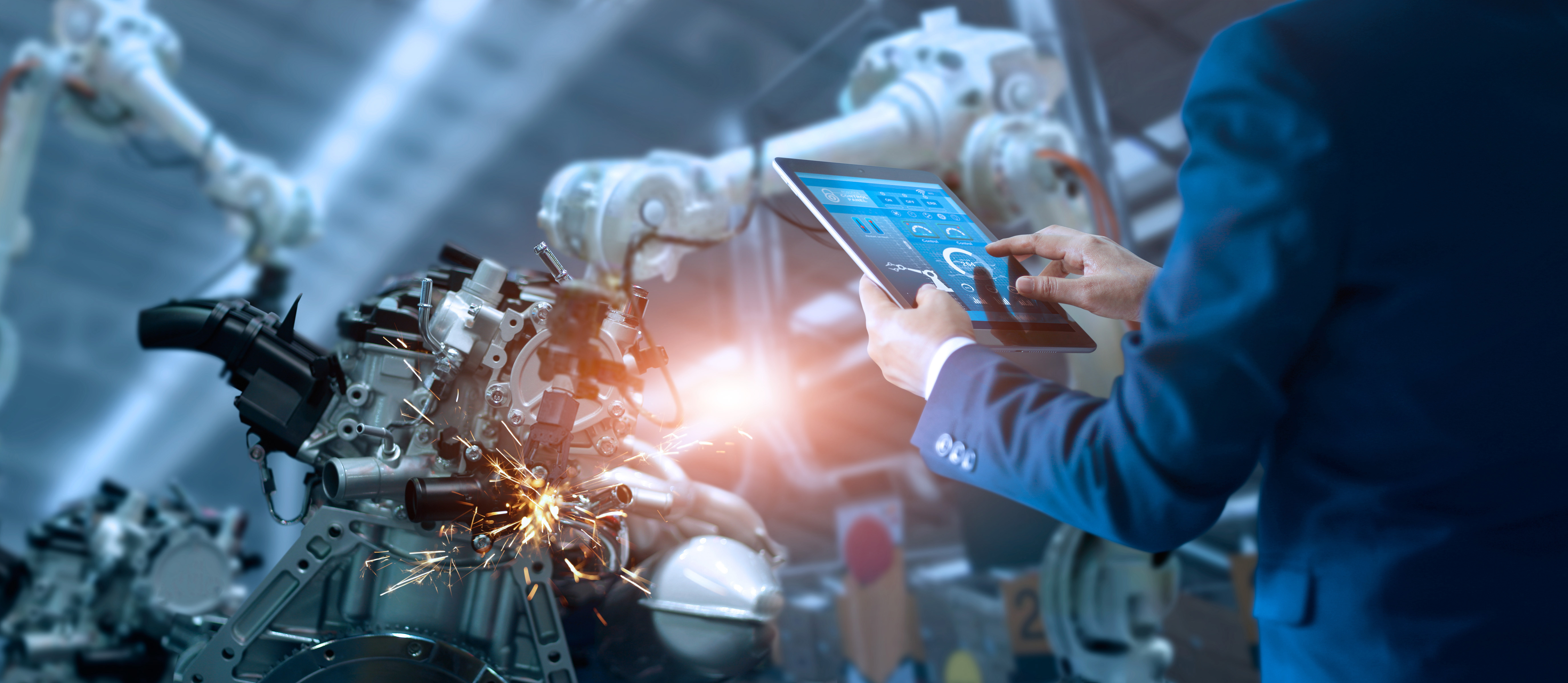- As the "bridge" between IT, machines and systems (OT), humans will play an overriding role in production today and in the future
- Challenges for production: shortage of skilled workers, growing diversity of variants, advancing digitalisation
- MHP's solution-focussed approach integrates people, machines, products and processes in IT systems, IoT platforms and digital services
- Acceptance, learning and new approaches are needed to successfully design and plan AI-controlled processes and individual technologies - together with the employees on the shop floor
Ludwigsburg – No industrial revolution has taken place without resistance. Evidently, scepticism and rejection are always among the side effects of new technologies. Many people shy away from change because they see their role under threat. Today, we are facing a new turning point: the transformation to Industry 4.0 with its end-to-end digitalised processes, in which IT and AI are taking on increasingly important roles in production. Up to now, it was always the human element that played a strong role; in recent years increasingly as an intermediary between IT, machines and plants (Operation Technology/OT). Employees were indispensable, even if their numbers on the shop floor have declined. However, even the production of the future will not function without employees. MHP offers consulting services and solutions for industry on its way to this future, in which people can remain at the centre of operations, supported in their roles by digital tools, but not replaced by them.
Over the course of time, digitalisation and automation of IT and OT developed largely separately from each other, and yet, almost without exception, the man or woman on the shop floor remained the interface and often directed the complex production process. However, a technology is now emerging that seems to be able to meet the increasing challenges in production. This technology combines IT and OT to meet the growing shortage of skilled workers, the increasing variety of products and the advancing digitalisation with an increasing understanding of sustainability and efficiency. Its potential is far from exhausted. Using it is vitally important, especially for small and medium-sized enterprises, in order to manage the transformation of production as they move towards Industry 4.0.
"The question we also ask ourselves at MHP, of course, is: will there be a lights-out factory one day, as the trend to reducing the number of people on the shop floor continues? But the great transformation of industry will only succeed if employees continue to be given a role. They will have to be at the centre of the transformation, because it’s their know-how that makes Industry 4.0 intelligent, resilient and flexible at the same time," explains Dr. Walter Heibey, partner at MHP.
For the success of the transformation to Industry 4.0, the acceptance of employees for the new digital tools and AI is an enabler that should not be underestimated. There are too many examples where this transformation did not get beyond the pilot phase, because the employees were not taken along and their role was not considered holistically. MHP's consulting service approaches the production of the future in a way that takes this holistic view and includes people and technology in equal measure. Only in this way can the transformation succeed.
MHP as a driver of digitalisation and sustainability
MHP's conceptual approach is to support people in their processes. This can leverage additional potentials, which ultimately leads to an increase in efficiency as a consequence of greater consistency. In future, the applied technical solutions will also digitise human know-how, which is usually lost when a worker leaves his or her job. This way, the digitised treasure trove of knowledge will be preserved for the company. The human know-how captured and preserved in this way allows AI to learn from data and establish new, more intelligent processes, even long after the person has left the company. It is this digitalisation that really makes end-to-end automation a reality. AI could be used in production to identify process improvement opportunities, predict failures and increase efficiency. At the same time, this would reduce budget and resource requirements, thus also improving sustainability. However, the aim is not to replace human labour and know-how, but to support employees in their tasks.
Such a strategic approach to using AI can free up more scope for people in production, not only in large but also in medium-sized companies. And this freedom will not only increase people's acceptance of the AI used, it will also enhance the attractiveness of the workplace - an important argument in times of increasing skilled worker shortages.
MHP has developed consulting solutions that enable a wide range of customers to fully exploit their potential. With this offering, MHP is consolidating its position as a partner for production transformation and is focusing, for example, on virtual assembly planning with full digital continuity - end-to-end engineering. The overarching goal is clear: highly networked, fully utilised, highly efficient and sustainable production that links IT and OT and works with online solutions without losing sight of the fact that the human element still has a role to play.



